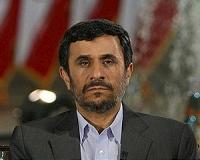 |
Riyadh (AFP) Nov 30, 2010 The US diplomatic memos released by WikiLeaks show a Saudi Arabia obsessed by a threat from Iran, with King Abdullah urging the Americans to destroy Tehran's nuclear weapons programme. Usually restrained in public statements about its Gulf arch-rival, Riyadh is vehement in private about Iran's alleged subversive activities and efforts to acquire a nuclear bomb for regional supremacy, according to the cables. But they also reveal that the kingdom's Gulf neighbours, all apart from Qatar, also fear Iran's alleged ambition to spread Shiite Islam. "He told you to cut off the head of the snake," Abdullah's key foreign affairs advisor Adel al-Jubeir, the ambassador to Washington, told the US ambassador to Iraq, Ryan Crocker, and General David Petraeus during a meeting with the king in April 2008. Jubeir reminded them of the king's "frequent exhortations to the US to attack Iran and so put an end to its nuclear weapons programme," according to a memo of the meeting. In January 2009, Deputy Foreign Minister Prince Turki al-Kabeer "warned that if Iran tried to produce nuclear weapons, other countries in the Gulf region would be compelled to do the same" as a deterrent. A February 2010 briefing document from the US embassy in Riyadh says King Abdullah repeated the same sentiment to then-White House national security advisor General James Jones. "The king told General Jones that if Iran succeeded in developing nuclear weapons, everyone in the region would do the same, including Saudi Arabia." In the documents, Abdullah told American delegates in a March 2009 meeting that the Iranians don't think they are doing anything wrong and don't recognise their mistakes. Even if the Israeli-Palestinian conflict is resolved, Abdullah said, "Iran's goal is to cause problems." "There is no doubt something unstable about them ... May God prevent us from falling victim to their evil." While the king's strong views have not been publicised in the past, the memos did not surprise regional security specialists. "This is a very commonly known attitude," said Theodore Karasik of the Institute for Near East and Gulf Military Analysis in Dubai. "Those feelings were meant to be kept more private ... in order to be able to craft policy," he said. Lined up on opposite sides of the Gulf, the Saudis have always opposed Iran's geopolitical interests while highlighting an "Arab versus Persian" theme. "We have had correct relations over the years, but the bottom line is that they cannot be trusted," Abdullah told US officials in March 2009. He described how he had told Iranian Foreign Minister Manouchehr Mottaki to stay away from the Palestinian Islamist movement Hamas earlier that same day. Mottaki replied that "these are Muslims," according to the US account. "No, Arabs," Abdullah responded. "You as Persians have no business meddling in Arab matters." Underlying the rivalry is a deep Shiite-Sunni schism. Saudi Arabia is predominantly Sunni, and minority Shiites face regular condemnation by officials as having rejected "true" Islam. Iran, meanwhile, is predominantly Shiite. The memos show the level of US frustration over Saudi reluctance to send an ambassador to mainly Shiite Iraq. The Saudis say their envoy would face the threat of kidnapping or assassination, but they also make clear that they cannot accept Prime Minister Nuri al-Maliki's alleged pro-Shiite bias. "I don't trust this man ... He's an Iranian agent," Abdullah told the Americans in March 2009. Saudis and their neighbours see Iranian agents popping up all around the region, setting up "Hezbollah-like organisations" in Africa, Yemen, and elsewhere, the documents show. The Saudis and their Gulf allies insist Tehran was behind the Huthi rebellion in northwest Yemen that spilled over into Saudi Arabia in late 2009, dragging the Saudi military into a four-month cross-border conflict. But Riyadh has never provided concrete evidence on this, the memos suggest. The Saudi foreign ministry said on Monday said the Wikileaks documents "do not concern the kingdom" and declined to comment on specifics. But a government foreign affairs advisor said that, despite the revelations: "This is the most positive exposure of the king's way and character. He is frank and straightforward" with both visiting Americans and the Iranians."
Share This Article With Planet Earth
Related Links Learn about nuclear weapons doctrine and defense at SpaceWar.com Learn about missile defense at SpaceWar.com All about missiles at SpaceWar.com Learn about the Superpowers of the 21st Century at SpaceWar.com
 Iran says nuclear scientists and atomic programme attacked
Iran says nuclear scientists and atomic programme attackedTehran (AFP) Nov 29, 2010 A defiant Iran admitted Monday that its atomic programme may have come under cyber-attack as one of its top nuclear scientists was killed by a bomb attached to his car in the capital and another was wounded by a similar device. President Mahmoud Ahmadinejad blamed the attacks against the two senior scientists in Iran's controversial nuclear programme on Israel and Western powers led by the U ... read more |
|
| The content herein, unless otherwise known to be public domain, are Copyright 1995-2010 - SpaceDaily. AFP and UPI Wire Stories are copyright Agence France-Presse and United Press International. ESA Portal Reports are copyright European Space Agency. All NASA sourced material is public domain. Additional copyrights may apply in whole or part to other bona fide parties. Advertising does not imply endorsement,agreement or approval of any opinions, statements or information provided by SpaceDaily on any Web page published or hosted by SpaceDaily. Privacy Statement |